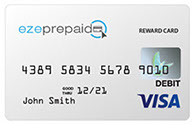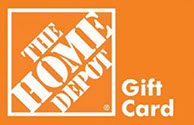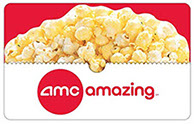The Importance of Platform Technology for B2B Incentive Programs
B2B prepaid incentive programs have become a popular tool for businesses to drive sales, increase customer loyalty, and improve employee performance. These programs offer a wide range of benefits, including cost savings, increased efficiency, and improved customer satisfaction. However, in order to fully realize the potential of these programs, businesses must turn to the latest technology to support their initiatives.
Platform technology has emerged as a key solution for businesses looking to streamline their operations and gain a competitive edge. This technology allows businesses to automate tasks, such as reward fulfillment and payment processing, and provides advanced features for data analytics, reporting, and compliance. In addition, platform technology allows for easy scalability and customization, so businesses can tailor their programs to meet specific needs.
In this blog, we will explore the many benefits of platform technology for B2B prepaid incentive programs. We will look at how this technology can help businesses automate processes, increase efficiency, and improve the user experience for program participants. We will also discuss the security and compliance advantages that platform technology provides, and how it can help businesses make data-driven decisions. The purpose of this blog is to provide an in-depth look into the benefits of platform technology for B2B prepaid incentive programs, encouraging businesses to consider its implementation in their operations.
Platform technology for automation and efficiency
One of the major benefits of platform technology is its ability to automate tasks, allowing businesses to streamline their operations and increase efficiency. In the context of B2B prepaid incentive programs, automation can be used to handle tasks such as reward fulfillment and payment processing. This can significantly reduce the workload for businesses, allowing them to focus on other important aspects of the program.
With platform technology, businesses can also set up automatic triggering and notifications for certain actions, such as when a participant reaches a certain milestone or when a reward is earned. This not only reduces the need for manual intervention, but also ensures that rewards are distributed in a timely and consistent manner, improving the overall user experience.
Automation also leads to cost savings for businesses, as it reduces the need for manual labor and eliminates the possibility of human error. Additionally, platform technology can provide real-time reporting and analytics to track program performance and make informed decisions, which can further increase efficiency and cost savings.
In summary, platform technology provides automation capabilities that allow businesses to streamline their operations, increase efficiency, and reduce costs. With its ability to automate tasks such as reward fulfillment and payment processing, platform technology can help businesses to focus on other important aspects of the program and improve the user experience for participants.
Platform technology for automation and efficiency
Platform technology for scalability and flexibility
Scalability and flexibility are essential for any business that wants to remain competitive in today’s market. Platform technology can provide businesses with the ability to easily scale their programs to accommodate growth in the number of participants or program offerings. This allows businesses to respond to changes in demand and adapt to new market conditions.
In addition, platform technology provides businesses with the flexibility to customize their programs to meet specific business needs. This can include customizing the user interface, integrating with existing systems, or creating unique reward structures. This level of customization can help businesses create programs that are tailored to their specific audience, resulting in more effective engagement and better results.
Platform technology also allows for easy integration with other systems, such as CRM, ERP, or marketing automation platforms. This allows businesses to integrate their incentive program with other aspects of their operations, such as sales and marketing, to maximize their impact.
In summary, platform technology provides businesses with the scalability and flexibility they need to remain competitive. Its ability to easily scale programs to accommodate growth and its flexibility to customize and integrate with other systems, helps businesses to create programs that are tailored to their specific audience and achieve better results.
Platform technology for security and data analytics
Security and data analytics are two crucial aspects of any B2B prepaid incentive program, and platform technology can provide advanced solutions for both. With platform technology, businesses can ensure that sensitive information is protected and prevent fraud through advanced security measures such as encryption and multi-factor authentication. This can provide peace of mind for both businesses and program participants, knowing that their sensitive information is secure.
In addition to security, platform technology also provides businesses with access to in-depth data analytics and reporting. This allows businesses to track program performance, monitor participant engagement, and make data-driven decisions. The platform technology can also enable real-time reporting, so businesses can quickly identify and address any issues that arise.
Data analytics can also help businesses identify trends and patterns in participant behavior, which can be used to improve the program and drive better results. For example, businesses can use analytics to identify which rewards are most popular, which channels are driving the most engagement, and which participants are most active.
In summary, platform technology provides advanced solutions for security and data analytics, which are critical for any B2B prepaid incentive program. With its ability to protect sensitive information and prevent fraud, businesses and participants can have peace of mind. Additionally, platform technology provides businesses with access to in-depth data analytics and reporting, which can help them track program performance, monitor participant engagement, and make data-driven decisions to improve the program.
Platform technology for user experience and compliance
Platform technology can also improve the user experience for program participants through intuitive interfaces and streamlined processes. With platform technology, participants can easily track their progress, view rewards available, and redeem rewards through a self-service portal. This not only improves the user experience, but also reduces the workload for businesses by minimizing the need for manual intervention.
In addition to user experience, platform technology can also help businesses ensure compliance with relevant regulations and industry standards. The platform can provide features such as automated compliance checks and fraud detection, ensuring that program rules are followed and that rewards are distributed appropriately. This can help businesses avoid penalties and maintain good standing with regulatory bodies.
Platform technology can also help businesses maintain compliance with data privacy regulations such as GDPR, HIPAA, or CCPA. The platform can provide features such as data encryption, access controls, and data deletion capabilities to ensure that participant data is protected and that businesses are following relevant regulations.
In summary, platform technology provides businesses with tools to enhance the user experience for participants and maintain compliance with regulations and industry standards. Its ability to provide intuitive interfaces, streamlined processes, automated compliance checks, and data privacy features help businesses to create a better user experience for program participants and stay compliant with industry regulations.
In conclusion, platform technology is a powerful solution for businesses looking to improve the effectiveness of their B2B prepaid incentive programs. Platform technology provides automation and efficiency by streamlining tasks such as reward fulfillment and payment processing. It also enables scalability and flexibility for businesses to adapt to changes in the market and provides customization that allows businesses to tailor their programs to meet specific needs. Additionally, platform technology provides advanced security and data analytics, allowing businesses to protect sensitive information, prevent fraud, and make data-driven decisions. Furthermore, it enables businesses to enhance the user experience for program participants and maintain compliance with regulations and industry standards.
In today’s fast-paced business environment, companies need to be able to respond quickly to changes in the market and stay ahead of the competition. Platform technology provides the tools businesses need to create effective incentive programs that drive sales, increase customer loyalty, and improve employee performance. We hope this blog has provided a comprehensive look into the benefits of platform technology for B2B prepaid incentive programs and encourages businesses to consider its implementation in their operations.
Additional Resources:
As a next step, businesses interested in implementing platform technology for their B2B prepaid incentive programs may want to explore the following resources:
Research various platform technology providers to find the best fit for your business needs. Look for providers with a proven track record of delivering results for businesses in your industry, and consider factors such as scalability, customization, and security.
Read case studies and customer testimonials to get a better understanding of how platform technology has been used successfully by other businesses.
Attend webinars, conferences, or other events focused on platform technology for B2B prepaid incentive programs. This can be a great way to learn about the latest trends and best practices in the industry.
Reach out to industry experts or consult with a technology consultant to get personalized advice on how to implement platform technology in your business.
Finally, consider doing a free trial or a pilot program with the platform technology provider before committing to a full-scale implementation. This can help you to evaluate the platform and see how it will work for your business.
By exploring these resources, businesses can gain a deeper understanding of the capabilities of platform technology, and how it can help them to create more effective B2B prepaid incentive programs.
Contact Sales
Want more information about Ezeprepaid? We're happy to help! We provide quick-to-market prepaid and gift card solutions customized to meet your company’s needs.
"*" indicates required fields
Check out our card offerings














